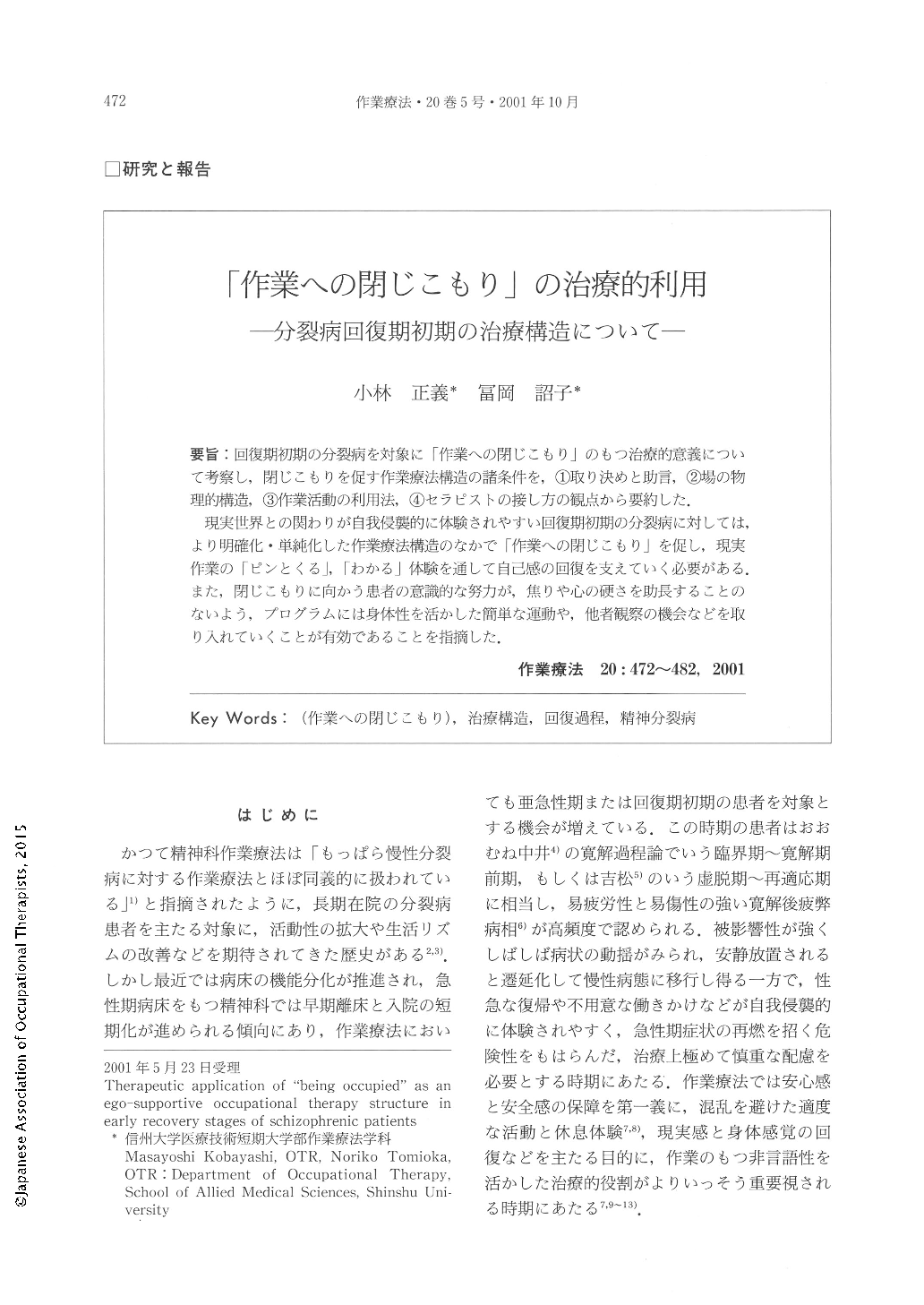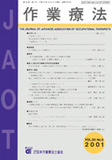Japanese
English
- 販売していません
- Abstract 文献概要
- 1ページ目 Look Inside
- 参考文献 Reference
- サイト内被引用 Cited by
要旨:回復期初期の分裂病を対象に「作業への閉じこもり」のもつ治療的意義について考察し,閉じこもりを促す作業療法構造の諸条件を,①取り決めと助言,②場の物理的構造,③作業活動の利用法,④セラピストの接し方の観点から要約した.
現実世界との関わりが自我侵襲的に体験されやすい回復期初期の分裂病に対しては,より明確化・単純化した作業療法構造のなかで「作業への閉じこもり」を促し,現実作業の「ピンとくる」,「わかる」体験を通して自己感の回復を支えていく必要がある.また,閉じこもりに向かう患者の意識的な努力が,焦りや心の硬さを助長することのないよう,プログラムには身体性を活かした簡単な運動や,他者観察の機会などを取り入れていくことが有効であることを指摘した.
Psychiatric occupational therapy (OT) was once criticized for stereotyped programs which reinforced chronic schizophrenic patients to become occupied in activity programs for a long time. However, our experience with sub-acute schizophrenic patients shows that "being occupied" was a key issue in terms of ego-supportive therapeutic structure in occupational therapy. The purpose of this study is to reconsider the significance of the "being occupied" phenomenon observed in occupational therapy for schizophrenic in-patients at early recovery stages.
Two schizophrenic patients are briefly presented to discuss the therapeutic significance of "being occupied" in terms of providing safe and assured experiences of being self, 'I am' and/or 'I do', in relation to external reality. These experiences are supported and enhanced by the uniqueness of occupational therapy structure, composed of place, time, people and activity, which presents a simulation of a realistic world. However, this uniqueness may become overwhelming and intrusive to fragile ego boundaries in the sub-acute psychotic state. It is crucial that programs for "being occupied" should be carefully and individually tailored. Considerations are to be given to starting orientation and guidance with simple and clear mutual agreement, physical space setting to be occupied alone to avoid unnecessary and accidental intervening human contacts. The utilization of concrete and simplified constructive activities is often introduced successfully by therapists whose essential role is to be a careful observing participant, thus avoiding unnecessary intervention but to give a hand when needed. Brief and short physical exercise and/or in-door sport is to be included to enchance somatic awareness of fatigue and relaxation.
Our clinical experiences suggest that ego integrative function of "being occupied" support a fundamental recovery process from the sub-acute psychotic state, "being occupied" experiences seem to enchance ego boundaries and sense of self, which lead to self-initiated psychic retreat and autonomy for spontaneous and intermittent resting experiences in daily living.

Copyright © 2001, Japanese Association of Occupational Therapists. All rights reserved.


